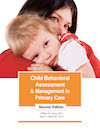 How are dimensions of temperament scales identified and defined?
How are dimensions of temperament scales identified and defined?
Although there is much agreement about what temperament is, there are many ways of defining the traits to be studied.
Are there 9 temperamental characteristics, or 4 or 3? How do investigators decide which aspects of temperament to study? At least part of the answer appears to be based on the underlying theory of temperament.
The New York Longitudinal Study researchers started with a content analysis of parent's descriptions of their infant's behavior and sorted these into as many separate categories as they could identify. Initially this process resulted in 10 different variables, but was later reduced to nine because they could not distinguish between attention span and persistence when observing infant behavior and combined those two categories into one.
The evolutionary theory of Arnold Buss and Robert Plomin used criteria that included presence of the trait in lower species as well as humans, genetic evidence of heritability and longitudinal stability to define their traits. Their list included Activity, Emotionality, Sociability and Impulsivity, which they termed the EASI theory. Later, impulsivity was dropped because it did not seem to meet all of their theoretical criteria.
Other theories have used the statistical technique of factor analysis to define their temperament dimensions. John Bates and colleagues identified a 'difficultness' factor from their maternal ratings of infants, which has been related to parental perceptions of infant crying as well as use of coercive techniques in controlling toddler behavior.
Mary Rothbart and colleagues have conducted a number of factor analytic studies which have identified concepts such as effortful control, positive affect, surgency and selfregulation as components of temperament.











